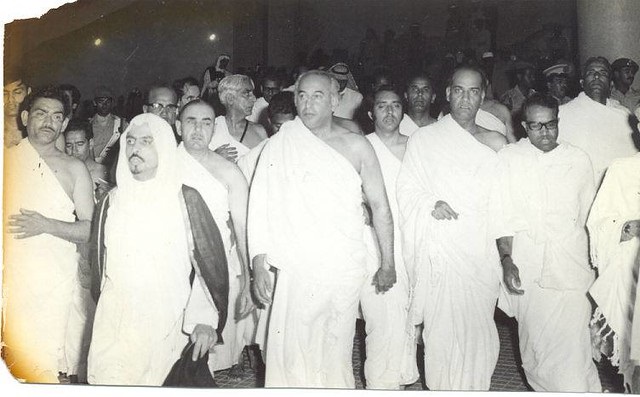Judges letter and trial of Zulfiqar Ali Bhutto
The morning of
April 4, 1979 is still etched in my mind. I woke up early in the morning to go
to school and I saw that my mother's eyes were red. He didn't say anything out
of tongue, but I understood that something happened that shouldn't have
happened. My mother confirmed my fear with tears in her eyes. Pakistan's first
elected Prime Minister was hanged by a despicable military regime.
This was not
entirely surprising, but it was definitely a shock. Until the last minute, many
Pakistanis hoped that there would be another way out. All the countries with
which Pakistan had diplomatic relations appealed for forgiveness. (It is worth
noting that Suharto's government of Indonesia was not among these countries.) I
believe that at least two countries, one the US and the other Saudi Arabia,
could have pressed for Zulfiqar Ali Bhutto's execution if they had wanted to. .
But both
countries did not. General Zia-ul-Haq rejected the appeals of international
countries as a move by the International Union of Politicians. Benazir Bhutto
noted in her book 'Daughters of East' that the Supreme Court, which had upheld
the death penalty order of the Lahore High Court by 3-4, had also unanimously
recommended commutation of the sentence. But Ziaul Haq refused to choose the
'difficult path'. At that time, he had believed that someone had to embrace
death, whether it was himself or Zulfiqar Ali Bhutto. The second choice seemed
easier and thus his lifeline was cut.
It is the
45-year-old history of Pakistan that has taken a new turn in recent times. We
can only imagine what would have happened if the army had not intervened in
July 1977 and new elections had been agreed between the government and the
opposition before Zia-ul-Haq's martial law.
No one can deny
that a flawed democracy prevailed during the reign of Zulfiqar Ali Bhutto from
1971 to 1977. However, when martial law was lifted, the initial symptoms that
emerged at that time were positive. It can even be said that 1972 was the
golden year in which Pakistan was reborn. The fact that it does not mention the
massacre of last year which resulted in the amputation of our right arm and the
creation of Bangladesh is peculiar.
Many hopes were
dashed in 1973, especially when the National Awami Party (NAP) government in
Balochistan and the border was dismissed. By this time, not only had several
NEP leaders been indicted and thrown in jail, but the Pakistan People's Party
(PPP) itself had been sidelined with left-leaning ideologies, while their
replacements Jagirdars and temporary associates who left the PPP in or soon
after 1977.
One cannot say
for sure what the pace of Pakistan's development would have been had the army
not intervened, but it can be assumed that a return to public rule would
probably have been less damaging to the country. It would not be wrong to say
that Zulfiqar Ali Bhutto's biggest mistake was to make Ziaul Haq, the owner of
a bigoted personality, as the Chief of Army Staff. But making Ziaul Haq's
predecessor, General Tikka Khan, who is also known as the 'Butcher of Bengal',
responsible for operations in Balochistan was an even bigger mistake.
The creation of
the paramilitary security force was also a misstep, which we saw backfire when
Masood Mehmood's false testimony was possibly key to the execution of Zulfiqar
Ali Bhutto. This statement is not enough to give death sentence in any way but
Ziaul Haq and Chief Justice of Lahore High Court Maulvi Mushtaq who for the
sake of promotion gave death sentence to Bhutto on the basis of this fictitious
statement.
Allegations of
interference by six judges in recent days are reminiscent of the progress in
the Supreme Court of the appeal against Zulfiqar Ali Bhutto's conviction. In
1979-1978, the 9-member bench, which was expected to give a decision in favor
of Bhutto by 4-5, was somehow brought down to 7 judges by threats, after which
the balance changed and then 3- against Bhutto. From 4 the decision of the
judges came out. The judges who were against it decided against the punishment
despite all the threats and pressure.
Last month, the
Supreme Court in its belated verdict said that Zulfikar Ali Bhutto was not
given a fair trial. The people have known this for a long time, but now the
judiciary also recognizes it. The dubious decision of the court cannot be
withdrawn. However, this hasty death sentence is a dark chapter in the
country's history.
The judicial
(but highly unjust) assassination of Zulfiqar Ali Bhutto took place at an age
that is most important for a human being. He was only 51 years old at the time
of his execution. His younger son Shah Nawaz died at the age of 26, his elder
son Mir Murtaza at 42 while his daughter Ms. Benazir Bhutto was killed at the
age of 54.
It was a blow to
the Muslim world because Zulfikar Ali Bhutto was the third leader among the
heads of Islamic countries who participated in the second Islamic summit in
1974, 50 years ago. Before that, King Faisal of Saudi Arabia and Sheikh Mujibur
Rahman of Bangladesh were killed in 1975. Later, Anwar Sadat of Egypt was
killed in 1981 and then Muammar Gaddafi of Libya was killed 30 years later in
2011.
However, if
viewed from the perspective of Bhutto, the condition of the Pakistani nation
has further deteriorated after his death.







0 Comments